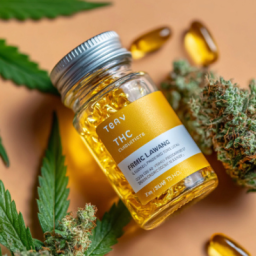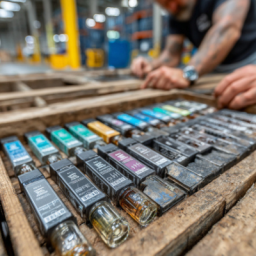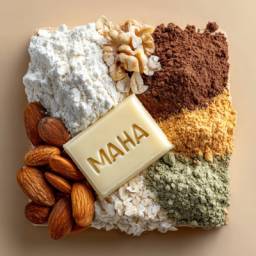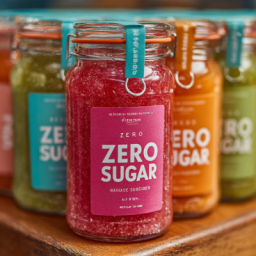
The following is a summary of relevant, notable Class Action Lawsuits that were filed during March 2025. Below is a summary of the plaintiff’s allegations. To request a copy of a particular complaint or for queries or further discussion, you’re welcome to reach out via email at [email protected].
1. Class Action Challenges Animal Welfare and Sustainability Claims
Plaintiffs: Aryout Michael Thomas Bhotiwihok, Jeremiah Cornelius, and Randy Paugh
Defendants: Fairlife, LLC; The Coca-Cola Company; Select Milk Producers, Inc.; Mike & Sue McCloskey
Product Focus: Fairlife milk, Core Power shakes
Summary:
This class action lawsuit alleges that Fairlife and Coca-Cola falsely marketed their dairy products as humane, sustainable, and recyclable, misleading consumers into paying a premium for products that do not live up to those claims.
The complaint cites graphic undercover investigations from the Animal Recovery Mission (ARM), documenting systemic animal cruelty at Fairlife’s supplier farms, including beatings, forced feeding, and inhumane euthanasia. Plaintiffs also challenge Fairlife’s “100% recyclable” packaging claims, alleging that the opaque PET bottles contain titanium dioxide, making them non-recyclable under industry standards.
Additionally, the suit accuses the companies of greenwashing, pointing to false claims about top-tier environmental practices and the use of methane digesters that may actually increase environmental harm.
Relief Sought: Damages, restitution, and an injunction to halt deceptive marketing practices.
2. Granola Brand Sued for Deceptive Slack Fill Packaging
Plaintiff: Annette Cody
Defendant: The Safe and Fair Food Company LLC
Product Focus: Safe + Fair Granola
Summary:
In this class action, plaintiff Annette Cody alleges that The Safe and Fair Food Company deceptively packages its Safe + Fair granola in containers with excessive nonfunctional slack fill—empty space that creates the illusion of more product than is actually provided. The complaint alleges that this practice misleads consumers, particularly lower-income individuals, into overpaying for less product, constituting violations of California’s False Advertising Law (FAL), Unfair Competition Law (UCL), and Consumers Legal Remedies Act (CLRA).
The opaque granola packaging allegedly conceals the true quantity of product, lacks a fill line, and provides no meaningful label information to clarify the amount inside. The complaint asserts that none of the recognized slack fill exceptions apply (e.g., product protection, settling, functional design). According to the plaintiff, the packaging was deliberately designed to boost profits at the expense of transparency and consumer trust.
Relief Sought: Class certification, corrective advertising, actual and punitive damages, restitution, and attorneys’ fees.
3. Class Action Challenges “No Artificial Preservatives” Claim on Swift Mac Product
Plaintiff: Vincent Fitzpatrick
Defendant: Target Corporation
Product Focus: Market Pantry “Swift Mac” Microwaveable Macaroni and Cheese Cups
Summary:
This class action lawsuit alleges that Target Corporation falsely advertises its Market Pantry-branded “Swift Mac” microwaveable mac & cheese cups as containing “No Artificial Preservatives”, when in fact the product contains synthetic chemical compounds that function as preservatives.
Plaintiff Vincent Fitzpatrick contends that the front label prominently stating “No Artificial Flavors, Preservatives or Synthetic Colors” is materially misleading. The ingredients list reveals the inclusion of potassium phosphate, sodium phosphate, and sodium citrate—substances derived through industrial chemical processes that are known to extend shelf life, stabilize pH, inhibit microbial growth, and prevent spoilage.
The complaint meticulously outlines how these ingredients function in food systems and cites scientific, regulatory, and industry sources to establish that each serves or can serve preservative and antimicrobial functions. The lawsuit argues that these functions, coupled with the synthetic nature of the ingredients, directly contradict the label’s “No Artificial Preservatives” claim, rendering the product misbranded under both New York’s Agriculture and Markets Law and federal food labeling standards
Fitzpatrick claims he and other consumers paid a premium based on the deceptive labeling and would not have purchased—or would have paid less for—the product had they known it contained synthetic additives. He seeks to represent a class of New York consumers who purchased the product believing it was free of artificial preservatives.
Relief Sought: Class certification, actual damages, restitution of the price premium paid by consumers, and attorneys’ fees.
4. Knorr Sides Sued Over “No Artificial Flavors or Preservatives” Labeling
Plaintiff: Julia Gibson and Jill Shuler
Defendant: Unilever United States, Inc.
Product Focus: Knorr Rice & Pasta Sides
Summary:
In this class action plaintiffs Julia Gibson and Jill Shuler allege that Unilever falsely advertises dozens of its Knorr Rice & Pasta Sides as containing “No Artificial Flavors or Preservatives.” The complaint claims that many of these products, including popular flavors like Chicken Rice, Alfredo Broccoli Pasta, and Cheddar Broccoli, contain a range of synthetic additives such as maltodextrin, MSG, sodium citrate, disodium inosinate, disodium guanylate, and citric acid—all of which are industrially processed and chemically derived.
The plaintiffs argue that these ingredients function as synthetic flavor enhancers and preservatives, directly contradicting the “natural” image portrayed by the product labeling. The complaint details the chemical manufacturing processes used to produce these additives, further underscoring that the “No Artificial” labeling is materially misleading to reasonable consumers.
Both plaintiffs purchased Knorr Sides in New York relying on the stated claims and allege that they would not have done so—or would have paid less—had they known the truth. The complaint alleges violations of New York General Business Law §§ 349 and 350 and breach of express warranty, and it seeks nationwide class certification.
Relief Sought: Class certification, actual and statutory damages, restitution, injunctive relief to stop the deceptive marketing, and a corrective advertising campaign.
5. “100% Natural” Seltzer Claim Challenged by Lab Testing
Plaintiff: Stacy Gradney and Sharon Toll
Defendant: Polar Beverages
Product Focus: Polar 100% Natural Seltzer (various flavors)
Summary:
This class action accuses Polar Beverages of falsely advertising its seltzer products as “100% Natural.” Plaintiffs Stacy Gradney and Sharon Toll allege that this claim is deceptive because independent lab testing—including radiocarbon (C-14) analysis and mass spectrometry—detected synthetic compounds in the flavoring.
The seltzers are marketed as containing only carbonated water and natural flavors, with packaging that emphasizes a clean label image (no sugar, sodium, sweeteners, or caffeine). However, plaintiffs argue that bio-based carbon levels ranged only from 87% to 91%, meaning 9–13% of the ingredients are derived from fossil fuel-based synthetic materials. Synthetic markers included ocimene quintoxide and several terpineols, commonly found in artificial flavorings.
The suit also contextualizes the product in the booming clean-label beverage space, where “100% Natural” claims carry significant marketing weight. The complaint references consumer surveys, FDA commentary, and scientific literature to support the assertion that reasonable consumers would be misled by Polar’s representations.
Relief Sought: Class certification, injunctive relief, actual and statutory damages, restitution, disgorgement of profits, and a corrective advertising campaign under California and New York consumer protection statutes.
6. “No Artificial Ingredients” Popcorn Claims Under Fire
Plaintiff: Kendall Hill
Defendant: Barcel USA, LLC
Product Focus: Popcornopolis “Nearly Naked” Popcorn – White Cheddar and Jalapeño Lime flavors
Summary:
In this class action, plaintiff Kendall Hill alleges that Barcel USA deceptively markets its Popcornopolis® “Nearly Naked” popcorn as containing “NO ARTIFICIAL INGREDIENTS”, when in fact the products contain citric acid and maltodextrin—two ingredients that the complaint claims are artificial based on how they are industrially produced.
The plaintiff details how citric acid is commonly manufactured using genetically modified black mold (Aspergillus niger) and chemical solvents, while maltodextrin is a highly processed carbohydrate derived from GMO corn using enzymatic hydrolysis and spray drying. The lawsuit argues that these ingredients do not meet consumer expectations of “natural” and that Barcel’s label is misleading under California’s Consumer Legal Remedies Act (CLRA), Unfair Competition Law (UCL), and False Advertising Law (FAL).
The complaint also highlights the marketing power of “free-from” claims and alleges that reasonable consumers are misled into believing the product is healthier and more natural, causing them to pay a price premium.
Relief Sought: Class certification, restitution, damages, punitive damages, corrective advertising, and injunctive relief.
7. Kratom Product Allegedly Misbranded as Dietary Supplement
Plaintiff: Harold M. Hoffman (individually and as attorney for the class)
Defendant: Anthony R. Vasquez and Mitra-9 Brands LLC
Product Focus: Mitra-9 Kava & Kratom Extract
Summary:
In this class action, plaintiff Harold M. Hoffman accuses Mitra-9 Brands LLC and its managing partner Anthony Vasquez of fraudulently marketing Mitra-9 Kratom as a legal dietary supplement, in violation of both FDA regulations and New Jersey’s Consumer Fraud Act.
The complaint asserts that the FDA explicitly prohibits labeling kratom products as dietary supplements due to their unapproved drug status and potential safety risks. Despite this, the Mitra-9 product label prominently identifies the product as a dietary supplement. The plaintiff alleges that this constitutes a knowing and deliberate misrepresentation intended to mislead U.S. consumers and gain a marketing advantage.
According to the suit, defendants exercised full control over product development, labeling, and distribution, intentionally concealing the illegal status of kratom supplement claims from regulators and the public. The lawsuit asserts that consumers—including the plaintiff, who purchased the product in December 2024 for $9.95—were misled into believing the product was safe, legal, and compliant, when in fact it was none of these.
Relief Sought: Injunctive relief, including removal of all current stock, corrective advertising, and public notice campaigns. It also demands treble damages, restitution, pre- and post-judgment interest, civil penalties, attorneys’ fees, and other just relief under New Jersey law. The plaintiff also demands a jury trial.
8. Supplement Brand Sued Over Misleading Dosage Labels
Plaintiff: Mika Kodaira
Defendant: Wholesome Story, LLC
Product Focus: Wholesome Story dietary supplements (Spearmint 1000 mg, Inositol 2000 mg, Melatonin 10 mg, Berberine 1500 mg, Women’s Probiotic & Postbiotic 20 Billion CFU)
Summary:
In this class action filed in the Central District of California, plaintiff Mika Kodaira alleges that Wholesome Story misrepresents the dosage amount per capsule on its dietary supplements. The lawsuit claims that labels advertising amounts such as “1000 mg” or “2000 mg” lead reasonable consumers to believe that each capsule contains the stated dosage. However, in reality, it takes two to four capsules to achieve the advertised dose—meaning consumers receive only a fraction of what they expected per unit.
Kodaira contends that this labeling practice is materially misleading, especially in a competitive supplement market where milligram strength is a key purchasing factor. The complaint asserts violations of California’s Consumer Legal Remedies Act (CLRA), Unfair Competition Law (UCL), and False Advertising Law (FAL), and includes causes of action for breach of express and implied warranties, negligent misrepresentation, intentional fraud, and unjust enrichment.
The suit also highlights how competitors either disclose dosage per serving or ensure their per-capsule dosages match what’s advertised, making Wholesome Story’s labeling an outlier that allegedly misleads consumers into overpaying for underdosed products.
Relief Sought: Class certification, injunctive relief, a corrective advertising campaign, restitution, disgorgement of profits, compensatory and punitive damages, and attorneys’ fees and costs.
9. “All Natural” Sauces Allegedly Contain Artificial Citric Acid
Plaintiff: Yolanda Pitre
Defendant: Allied Old English, Inc.
Product Focus: Sun Luck brand sauces labeled “All Natural” or “Natural”
Summary:
this class action accuses Allied Old English of deceptively marketing its Sun Luck sauces as “All Natural” or “Natural” despite the inclusion of manufactured citric acid—a synthetic preservative derived from genetically modified black mold (Aspergillus niger) and chemical solvents.
Plaintiff Yolanda Pitre claims this ingredient is artificial and industrially processed, contradicting consumer expectations and regulatory guidance regarding “natural” claims. The complaint provides scientific studies, USDA and FDA documentation, and citations to prior FDA warning letters that have found similar “natural” claims misleading when citric acid is present.
The plaintiff contends that reasonable consumers—especially those seeking clean-label, preservative-free foods—were misled by the front-label “All Natural” statement. She alleges that she and other class members overpaid or would not have purchased the product at all had they known the true nature of the ingredients.
Relief Sought: Class certification, restitution, damages, punitive damages, injunctive relief, and corrective advertising under California’s CLRA, UCL, and FAL, along with breach of express warranty.
10. “100% Juice” Label on ReaLemon and ReaLime Disputed for Including Artificial Preservatives
Plaintiff: Mel Rich and Jesse Lopez
Defendant: Mott’s LLP
Product Focus: ReaLemon and ReaLime juice products
Summary:
This class action lawsuit accuses Mott’s LLP of misleadingly marketing its ReaLemon and ReaLime products as “100% Juice,” “Natural Strength,” and “Real” lemon and lime juice, despite the presence of artificial preservatives—specifically sodium benzoate and sodium metabisulfite.
Plaintiffs Mel Rich and Jesse Lopez argue that these preservatives contradict the product’s name and label representations, which include statements like “Juice of About 2 Quality Lemons”, imagery of fresh citrus, and packaging shaped like lemons or limes. The complaint further alleges that Mott’s uses the vague phrase “with added ingredients” instead of the required “with added preservatives,” violating FDA labeling rules (21 C.F.R. § 101.30(b)(3)) and state laws adopted in California and New York.
The lawsuit cites consumer research showing that “real” and “natural” ingredient claims are top purchasing drivers in the juice category. Plaintiffs claim they paid a premium based on the deceptive labeling and seek to represent a nationwide class, as well as subclasses in California, New York, and additional states with similar consumer protection laws.
Relief Sought: Class certification, actual and statutory damages, restitution, punitive damages, corrective advertising, and injunctive relief.
11. “Healthy” Cereal Allegedly Misleading Due to High Sugar Content
Plaintiff: David Rodriguez and Zarah Blackmon
Defendant: Nature’s Path Foods, Inc.
Product Focus: EnviroKidz Organic Cereals (e.g., Choco Chimps, Gorilla Munch, Panda Puffs)
Summary:
This class action alleges that Nature’s Path falsely markets its EnviroKidz cereal line as healthy and suitable for children, despite containing high levels of added sugar—between 9 to 12 grams per serving, and up to 22 grams per bowl, which exceeds daily recommended limits for young children.
Plaintiffs Rodriguez and Blackmon claim that the cereals are positioned as healthful through claims like “Organic,” “Whole Grains,” “Vegan,” “No Artificial Flavors or Preservatives,” and the absence of high-fructose corn syrup. The packaging also features vibrant animal imagery and environmental messaging targeted at children and health-conscious parents.
The lawsuit argues that these marketing tactics mask the true sugar content and violate consumer protection laws by creating the false impression that the cereals are good for children’s health. Supporting data includes scientific literature, American Heart Association and FDA guidelines, and product testing suggesting that children typically consume far more than the stated serving size, amplifying the risk.
Relief Sought: Class certification, injunctive relief to halt deceptive marketing, corrective advertising, restitution, and damages under California’s CLRA, UCL, FAL, and breach of implied warranty.
12. Vitamin D3 Gummy Labeling Allegedly Misleads on Serving Size and Dosage
Plaintiff: Dorothy Rogers
Defendant: The Stop & Shop Supermarket Company LLC
Product Focus: Nature’s Promise Raspberry-Flavored Vitamin D3 Gummies
Summary:
In this class action, plaintiff Dorothy Rogers alleges that Stop & Shop misrepresents the quantity and dosage of vitamin D3 on the front label of its Nature’s Promise gummies. The label states “25 mcg (1,000 IU)” and “60 Gummies,” which Rogers argues reasonably leads consumers to believe that each gummy contains 25 mcg of vitamin D3, and that there are 60 servings in the bottle.
However, the back panel discloses that the serving size is two gummies, meaning the bottle only contains 30 servings, not 60 as implied. The complaint calls this a “misbranding” violation under federal and New York labeling laws, asserting that this failure to clearly and conspicuously disclose dosage and serving size constitutes deceptive packaging and misleading omissions.
Rogers claims that Stop & Shop failed to provide adequate net quantity disclosures, and that the misrepresentation resulted in consumers paying a premium for what appeared to be a higher-value product. The suit cites comparisons to competitors (such as GNC) that clearly indicate the number of gummies per serving on the front label.
Relief Sought: Class certification, actual damages, restitution, and injunctive relief.
13. “Climate Neutral” Claims on Clif Kid Bars Allegedly Mislead Eco-Conscious Consumers
Plaintiff: Cynthia Salguero
Defendant: Mondelez International, Inc.
Product Focus: Clif Kid ZBar and ZBar Protein snack bars
Summary:
This class action alleges that Mondelez falsely advertises its Clif Kid ZBars as “climate neutral,” misleading environmentally conscious consumers into paying a premium for a product that, in reality, contributes to climate change.
Plaintiff Cynthia Salguero contends that the packaging—featuring bold “climate neutral” claims—leads consumers to reasonably believe the bars are manufactured, transported, and marketed in ways that do not harm the environment. However, the complaint cites data showing that Clif Kid products emit approximately 54,000 tons of CO₂ annually, the equivalent of 12,596 gas-powered vehicles. The suit also argues that Mondelez’s reliance on carbon offsets and certification from Change Climate Project is insufficient, citing well-documented flaws and fraud in the carbon offset market.
The complaint details how Mondelez’s claims violate the FTC’s Green Guides by making unqualified, general environmental benefit statements without adequate disclosure or substantiation. The lawsuit calls this a textbook example of greenwashing, asserting that Mondelez intentionally exploited rising consumer demand for sustainable products without delivering on its promises.
Relief Sought: Class certification, restitution, compensatory and punitive damages, corrective advertising, and injunctive relief under federal and California law, including the CLRA, UCL, and FAL, as well as for breach of express warranty and unjust enrichment.
14. Cannabis Giant Accused of Selling THC Edibles Exceeding Legal Limits
Plaintiff: Erik Watt
Defendant: Trulieve Holdings, Inc. and 20+ affiliated dispensaries across Arizona and Florida
Product Focus: THC-infused edibles and edible oils (e.g., Rick Simpson Oil, macro-dose gummies, distillates)
Summary:
This class action alleges that Trulieve and its affiliates unlawfully marketed and sold THC-infused edibles and oils that far exceed the legally permissible potency limits under Arizona and Florida law. Plaintiff Erik Watt purchased a Roll One-branded 1-gram syringe of Rick Simpson Oil (RSO), which allegedly contains THC equivalent to 100 standard servings, without proper warnings or packaging controls.
The complaint accuses Trulieve of disguising edible oils and macro-dose gummies as marijuana concentrates to bypass strict regulations. For example, some edible products allegedly contain 1,000 mg of THC per package, compared to the legal cap of 100 mg in Arizona and 200 mg in Florida. Watt claims that Trulieve’s marketing, labeling, and online listings misrepresent these items as compliant, putting consumers at risk of legal penalties and serious health effects from overconsumption.
The lawsuit further alleges that Trulieve operates a vertically integrated, nationwide dispensary chain that knowingly exploited regulatory loopholes to increase profits, all while presenting itself as compliant under state medical and recreational marijuana laws.
Relief Sought: Class certification, compensatory and statutory damages, restitution, corrective advertising, and injunctive relief.
15. “Non-GMO” Avocado Oil Label Challenged as Misleading
Plaintiff: Michelle Whiteside
Defendant: Chosen Foods, LLC
Product Focus: Chosen Foods 100% Pure Avocado Oil
Summary:
Filed in the Central District of California, this class action alleges that Chosen Foods falsely labels its avocado oil as “Non-GMO,” misleading consumers into believing the product offers a health or quality advantage over competitors. Plaintiff Michelle Whiteside argues that the “Non-GMO” claim is inherently deceptive, since no genetically modified avocados or avocado oil exist commercially.
The complaint asserts that reasonable consumers interpret “Non-GMO” labels to mean that the product is uniquely natural, safer, or healthier than other similar oils, prompting them to pay a price premium. Whiteside contends that Chosen Foods exploits this perception through targeted branding that appeals to health-conscious and environmentally aware shoppers.
The suit alleges that this marketing constitutes false advertising and unfair competition under California’s UCL, CLRA, and FAL, and also violates FDA guidance, which warns against implying non-existent distinctions with “Non-GMO” claims.
Relief Sought: Class certification, injunctive relief, corrective advertising, actual and punitive damages, and restitution for consumers misled by the “Non-GMO” labeling.
Risk Reduction Tips for Food & Beverage Companies
- Substantiate health and nutrition claims with credible scientific data.
- Avoid ambiguous green claims like “climate neutral” without third-party validation.
- Review slack fill policies to ensure compliance with state packaging laws.
- Use care when promoting natural or GMO-related product attributes.
- Ensure compliance with cannabis and supplement labeling regulations in each applicable state.
- Avoid dosage misrepresentations on dietary supplement labels.
What is a Class Action?
A class action is a type of lawsuit where one or more plaintiffs file on behalf of a larger group with similar claims. In the food and beverage sector, class actions often arise from misleading labels, deceptive advertising, or non-compliant ingredients. These lawsuits can result in major financial penalties and brand damage. Proactively monitoring compliance and emerging litigation trends is essential to reducing risk.
For more insights or to receive any of the full complaints, contact us at [email protected].








